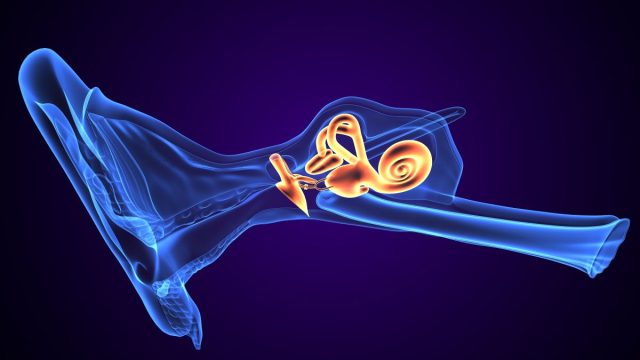Findings based on analysis of MRI in early- versus late-stage disease
By Lori Solomon HealthDay Reporter
TUESDAY, Sept. 3, 2024 (HealthDay News) — The saccule-to-utricle ratio inversion may serve as an effective imaging marker for diagnosis of early-stage Meniere disease, according to a study published online July 27 in The Laryngoscope.
Wenting Deng, M.D., from Sun Yat-Sen Memorial Hospital at Sun Yat-Sen University in Guangzhou, China, and colleagues compared the saccule-to-utricle ratio inversion in patients with early-stage (56 patients) versus late-stage (70 patients) Meniere disease based on magnetic resonance imaging.
The researchers found that 46.43 percent of the early-stage group showed an enlarged saccule that was larger than the utricle, with saccule-to-utricle ratio inversion. In the late-stage Meniere disease group, only four individuals (5.71 percent) showed saccule-to-utricle ratio inversion. Within the early-stage Meniere disease subgroup, those with a disease duration of no more than six months had a higher proportion of saccule-to-utricle ratio inversion than the subgroup with a disease duration of more than six months (70 versus 33.33 percent).
“Saccule-to-utricle ratio inversion may serve as an effective imaging marker for diagnosis of early-stage Meniere disease,” the authors write. “Our finding suggests that endolymphatic hydrops in Meniere disease may primarily originate from the saccule.”
Abstract/Full Text (subscription or payment may be required)
Copyright © 2024 HealthDay. All rights reserved.



















